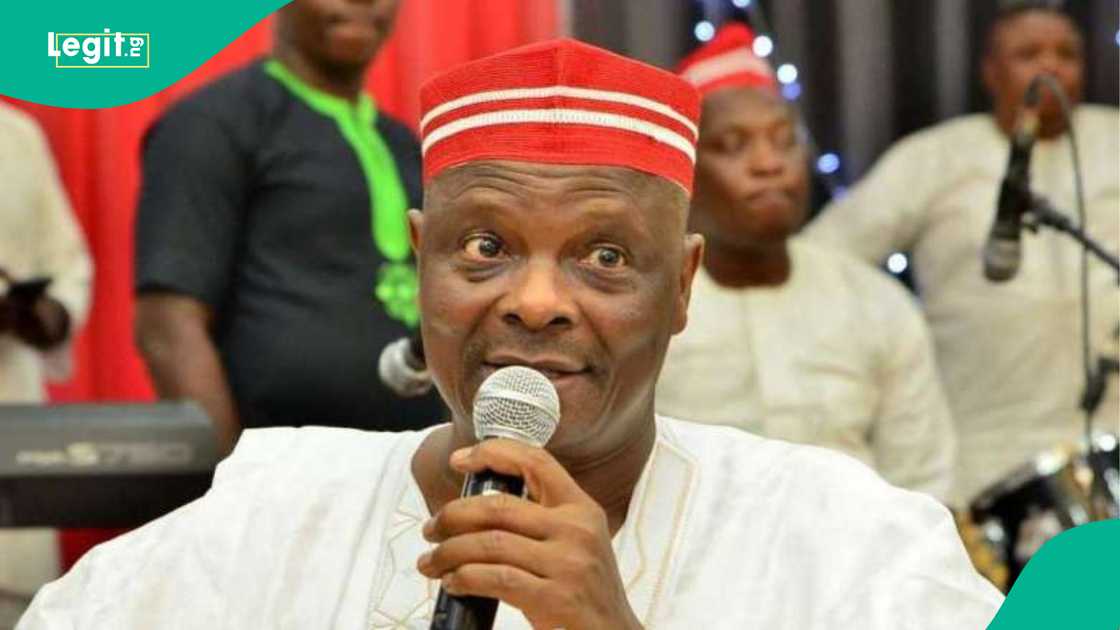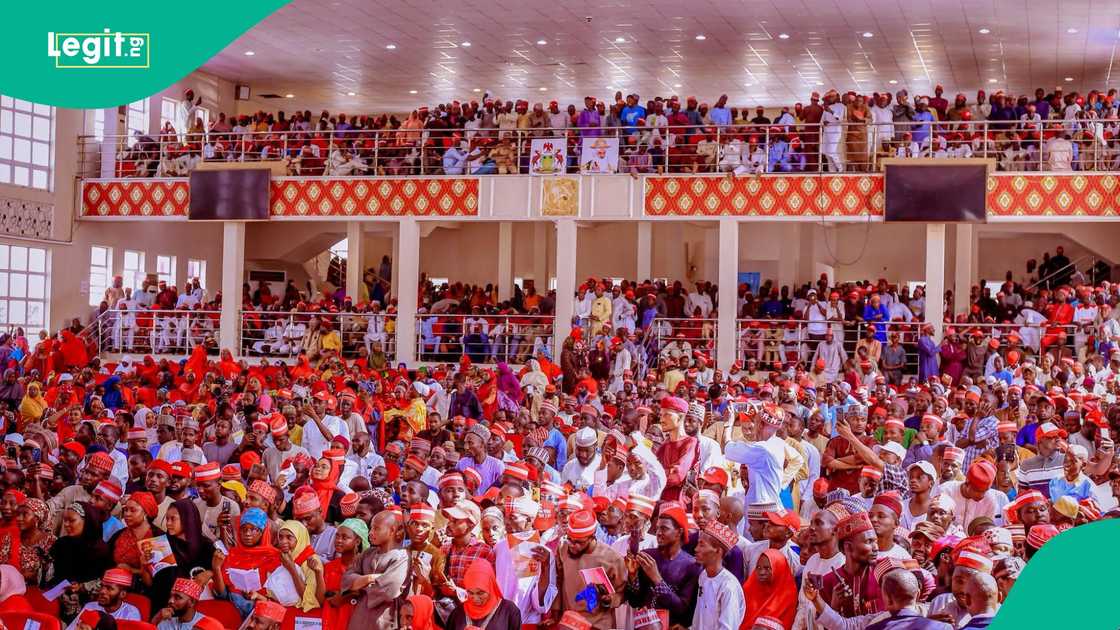Political dynamics in Kano State have once again taken center stage as Alhaji Amadu Danfulani, a prominent leader in the influential Kwankwasiyya Movement of Gobirawa Ward (Dala LGA), publicly resigned from the New Nigeria People’s Party (NNPP). His announcement marks a significant shift and underscores the ever-evolving landscape of grassroots politics in northern Nigeria.
At the core of Danfulani’s decision is his disappointment with the NNPP and its national figurehead, former Kano governor and the party’s 2023 presidential candidate, Rabiu Musa Kwankwaso. In explaining his move to the All Progressives Congress (APC), he cited loss of faith in the movement’s present direction and leadership under Kwankwaso—a development raising questions about the future of Kwankwasiyya, a group widely credited with energizing Kano’s contemporary political scene.
Why Danfulani Broke Away from NNPP
Danfulani, once regarded as a steadfast pillar of the NNPP in Dala, referred to mounting discontent among his supporters. He stated that both he and thousands of followers have grown increasingly dissatisfied with what he described as the “anti-people” policies implemented by the party at state level. This sentiment echoes a wider frustration among some party loyalists in Kano, who believe that NNPP’s agenda is drifting from its grassroots origins.
His formal defection occurred at a well-attended event at the state APC headquarters on Hotoro-Maiduguri Road, Kano, on Tuesday, September 30. According to attendees, the scale of his defection signals a notable blow to NNPP’s local machinery and presents new questions for Kano’s political trajectory ahead of future elections.
Speaking on behalf of APC chairman Abdullahi Abbas, Zonal Central Chairman Alhaji Shehu Aliyu Ungoggo and HJRBDA Managing Director Rabiu Suleiman Bichi welcomed Danfulani along with several other former NNPP members. High-ranking APC figures, such as the state Youth Leader Alhaji Labaran Kura (who also serves as the Northwest Zonal Youth Leader), as well as the party chairmen of Dala LGA and Gobirawa Ward, were in attendance—underscoring the importance the APC attaches to this realignment.
Local Perspectives: What This Means for Kano Politics
Locally, Kano has long played a pivotal role in shaping Nigeria’s wider political narrative. The Kwankwasiyya Movement, once a formidable force renowned for its disciplined “red cap” supporters, dramatically influenced the 2023 general election results. However, diminishing party unity and high-profile defections have cast uncertainty over the future of the NNPP’s presence in Kano.
Grassroots observers and political analysts, such as Musa Dauda, a lecturer at Kano State Polytechnic, argue that “these defections have weakened the structure of the NNPP in Kano and could lead to further instability unless reconciliation is prioritized at the leadership level.”
APC’s Open Door Policy and the Transfer of Allegiance
Welcoming the new joiners, APC chairman Abdullahi Abbas reinforced the party’s philosophy of openness. According to party officials, the APC remains ready to accept members from any opposition group, provided that entrants adhere to the constitution, principles, and internal protocols of the ruling party. This inclusivity message appears not just strategic, but also symbolic—projecting the APC as a broad church aiming to consolidate political power across the state and country. The party further emphasized that even high-profile figures like Kwankwaso himself would be accepted should he commit to the party’s tenets.
Political history in Nigeria shows that movement between parties is often motivated by disagreements over leadership style, policy direction, or personal ambition. As Danfulani and his associates become part of the APC fold, discussions now turn to how effective their integration will be, and whether this influx will translate into significant electoral gains at the next opportunity.
Kano’s Influence on Nigerian and Regional Politics
Kano’s population, cultural influence, and electoral volume make it a key battleground in Nigerian elections. The city’s robust youth demographic, in particular, can sway broader national outcomes. Past elections have seen Kano’s alliances and movements mirror broader shifts in northern politics—affecting not only state but also federal balances. In neighboring countries like Ghana and across West Africa, shifts of political allegiance as seen in Kano are studied closely, as they often foreshadow wider trends in party politics, grassroots mobilization, and opposition strategy throughout the region.
Is Kwankwaso Also Considering an APC Return?
Notably, there have been widespread rumors and speculation suggesting that Rabiu Kwankwaso may himself be considering a return to the APC. Reports have emerged of several informal and official meetings between Kwankwaso and President Bola Tinubu, both in Nigeria and abroad. Political correspondents claim that these discussions may center on issues of coalition-building, electoral reform, or strategic alignment ahead of future polls. However, no concrete evidence has yet emerged to confirm these claims.

Source: Twitter
Kwankwaso Responds: Refuting Defection Rumors
In an apparent response to these swirling rumors, Kwankwaso has gone on record—via social media and public statements—emphatically denying that he has submitted any letter of intent or begun formal steps to rejoin the APC. According to his spokespersons, reports of his imminent defection are unfounded, and he remains committed to his work within the NNPP for now.
Nevertheless, this denial has produced a mix of reactions throughout Nigeria. In Kano, supporters from both camps are closely monitoring developments, weighing how leadership shifts will impact local representation and the availability of party resources. Some argue that Kwankwaso’s continued denial affirms his loyalty to the opposition, while others see it as political strategizing ahead of negotiations.
Expert View: What Next for Kwankwasiyya and Kano’s Future?
According to Dr. Aishatu Bello, a political scientist at Bayero University Kano, “The recent defections from NNPP highlight cracks in the unified front that helped the party gain traction in 2023. Unless both parties address the root causes of dissatisfaction, more high-profile alignments may reshape Kano’s and Nigeria’s electoral map.” She also notes that internal party democracy, inclusion, and consistency in addressing grassroots concerns will be critical to the success of any political group moving forward.
- Party switching and realignment are longstanding features of Nigerian democracy, often reflecting deeper policy disagreements or struggles for influence.
- Youth mobilization and local leaders’ allegiances remain pivotal for electoral success in Kano and beyond.
- National and regional implications of Kano’s political shifts echo beyond Nigeria, influencing West African opposition politics and coalition-building approaches.
Looking ahead, attention is focused on how both NNPP and APC will respond. Will the NNPP take steps to address internal grievances and stem the tide of resignations? Can the APC effectively absorb and harness the energy of its new recruits to consolidate electoral advantage? The answers may shape not only Kano’s immediate future but also the wider landscape of northern Nigerian—and even West African—politics.
What do you think about the rise in defections and realignment among major political parties in Nigeria? Can this trend strengthen democracy, or does it undermine party stability and trust? Share your thoughts and experiences in the comments below, and keep following us for the latest updates on Northern Nigerian politics.
We want to hear from you! Do you have insights, experiences, or tips about party defections and political realignments in your area? Want your story featured or to sell us a tip? Email us at story@nowahalazone.com and get your voice heard across Nigeria and beyond!
For news updates, exclusive interviews, and more, follow us on
Facebook,
X (Twitter), and
Instagram.
For general support or inquiries, reach out to support@nowahalazone.com.










